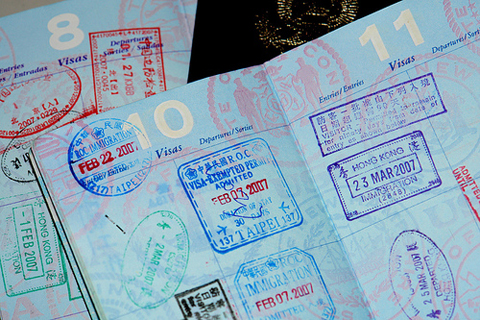
Earlier this week we provided an overview of the 2012 British Society of Middle Eastern Studies (BRISMES) conference. This post takes some of the highlights of the conference and provides a more in-depth look at some of the topics discussed.

Earlier this week we provided an overview of the 2012 British Society of Middle Eastern Studies (BRISMES) conference. This post takes some of the highlights of the conference and provides a more in-depth look at some of the topics discussed.
Week 2 of the Center for Security Studies’ Master of Advanced Studies in Security Policy and Crisis Management (MAS SPCM) lecture series moved from its focus on terrorism to consider money laundering, climate change and their impact upon the changing security landscape.
Money laundering and terrorism
The CSS’s Michel Hess begins by explaining links between money laundering and the financing of terrorist activities:

ETH Zurich recently hosted Block III of the Center for Security Studies’ (CSS) Master of Advanced Studies program in Security Policy and Crisis Management (SPCM). Between April 9 and 18, experts and scholars from around Europe gathered in Zurich to discuss how a host of “New Risks” are shaping security policies and responses. The ISN took the opportunity to speak to some of the lecturers to gauge their opinion on how these “New Risks” will impact upon the study of security in the not-too-distant future.
The Study of Terrorism
As terrorism studies continue to grow, Professor Peter Neumann of King’s College London gives his perspective on the future of terrorism research:

Due to the increased anonymity associated with transactions undertaken using Bitcoin, there has been a fear that illegal acts are being made a lot easier, and a lot safer to conduct. A recent article for PCPro claimed that Bitcoin “is now the currency of choice for the discerning cybercriminal.” This image problem has not been helped by articles associating bitcoins with Silk Road, an online ‘underground’ marketplace (accessible only via Tor) where all kinds of illicit goods may be purchased – weaponry, forgeries and drugs – and where the digital currency is the only accepted method of payment. This undoubtedly sullies Bitcoin’s reputation, and to a disproportionate degree: The Internet itself has facilitated commerce, and necessarily the crime which accompanies any marketplace. But security agencies can be just as resourceful as criminals, developing network analysis techniques based on statistical methodologies to detect suspicious transaction flows. Rather than a destructive force, the appearance of Bitcoin and its use for ‘bad’ as well as ‘good’ is simply another reiteration of the cat-and-mouse game played out every day between criminals and the law.

This week the ISN will examine the role of nationalism in an evolving and dynamic international system. We will also consider whether multiculturalism is a necessary and appropriate response to some of the more retrograde and unsettling aspects of nationalism. From the outset, however, it is important to mention that the social science literature on nationalism often emphasizes 1) the lack of a comprehensive definition for the term, or 2) that there is a multiplicity of nationalisms. Indeed, these nationalisms often get defined with catch-all terms such as New Nationalism, Liberal Nationalism, Small Nationalism and so on. This multiplicity, in turn, confirms that the very concept of the nation has developed across the course of history and refers to more than just to a group of people born in the same place.
Again, to chart our understanding of nationalism today, we begin by quickly outlining Ernst Renan’s conception of the nation-state, followed by a look at how some analysts are trying to transform this traditional view of it in order to respond more effectively to the stresses of globalization. (Yes, nationalism provides states with a cohesive identity, but often by playing upon the insecurity of societies to achieve desired outcomes.) Finally, we will quickly look at multiculturalism and see whether it offers an approach to addressing global challenges that is more user-friendly than nationalism.